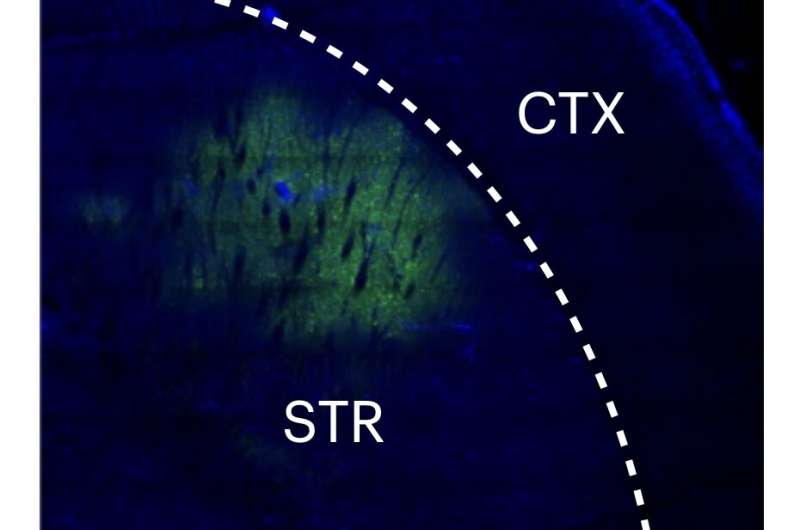June 23, 2023 feature
This article has been reviewed according to Science X's editorial process and policies. Editors have highlighted the following attributes while ensuring the content's credibility:
fact-checked
peer-reviewed publication
trusted source
proofread
Study finds that the release of endocannabinoids is mediated by postsynaptic synucleins

Endogenous cannabinoids, also known as endocannabinoids, are neurotransmitters (i.e., chemical messengers naturally produced by the body) that transmit specific signals from one neuron to another. These neurotransmitters are known to support several vital physiological processes, including sleep, mood, and appetite.
While countless studies have explored the functions of endocannabinoids, the processes through which they are released are still poorly understood. A recent paper by researchers at Stanford University, published in Nature Neuroscience, gathered evidence suggesting that the release of these key neurotransmitters is supported by postsynaptic synucleins, proteins that have been linked to the development of Parkinson's disease.
"Endocannabinoids are among the most powerful modulators of synaptic transmission throughout the nervous system, and yet little is understood about the release of endocannabinoids from postsynaptic compartments," Eddy Albarran, Yue Sun, and their colleagues wrote in their paper. "We report an unexpected finding: that endocannabinoid release requires synucleins, key contributors to Parkinson's disease."
Synucleins, including α-synuclein (α-Syn), β-synuclein (β-Syn) and γ-synuclein (γ-Syn), are small and soluble proteins expressed in the brain tissue of vertebrates, which are known to play a part in synaptic plasticity (i.e., the ability of the brain to change the strength of their connections and adapt over time). Past neuroscience studies found that mutations in the a-Synuclein (a-Syn) are linked to the development of early-onset Parkinson's disease, and that the protein tends to accumulate abnormally in patients diagnosed with Parkinson's disease, Alzheimer's disease and other neurodegenerative diseases.
Albarran, Sun and their colleagues set out to better understand how the release of endocannabinoids is modulated in the brain and were surprised to find that it is supported by synucleins. Their experiments were conducted on mice, using a series of genetic and imaging techniques.
"We show that endocannabinoids are released postsynaptically by a synuclein-dependent and SNARE-dependent mechanism," Albarran, Sun and their colleagues explained. "Specifically, we found that synuclein deletion blocks endocannabinoid-dependent synaptic plasticity; this block is reversed by postsynaptic expression of wild-type but not of mutant α-synuclein. Whole-cell recordings and direct optical monitoring of endocannabinoid signaling suggest that the synuclein deletion specifically blocks endocannabinoid release."
The findings gathered by this team of researchers were very surprising, as some past studies suggested that there was no link between SNARE proteins and the release of endocannabinoids. Ultimately, their work suggests that endocannabinoid signaling in the brain could be connected to Parkinson's disease, as well as other neurodegenerative illnesses.
In the future, this study could pave the way for further research investigating this connection further, potentially leading to important discoveries. This may in turn inform the development of new drugs and therapeutic interventions to alleviate the debilitating symptoms of these diseases.
"Given the presynaptic role of synucleins in regulating vesicle lifecycle, we hypothesize that endocannabinoids are released via a membrane interaction mechanism," the researchers wrote. "Consistent with this hypothesis, postsynaptic expression of tetanus toxin light chain, which cleaves synaptobrevin SNAREs, also blocks endocannabinoid-dependent signaling. The unexpected finding that endocannabinoids are released via a synuclein-dependent mechanism is consistent with a general function of synucleins in membrane trafficking and adds a piece to the longstanding puzzle of how neurons release endocannabinoids to induce synaptic plasticity."
More information: Eddy Albarran et al, Postsynaptic synucleins mediate endocannabinoid signaling, Nature Neuroscience (2023). DOI: 10.1038/s41593-023-01345-0
© 2023 Science X Network















